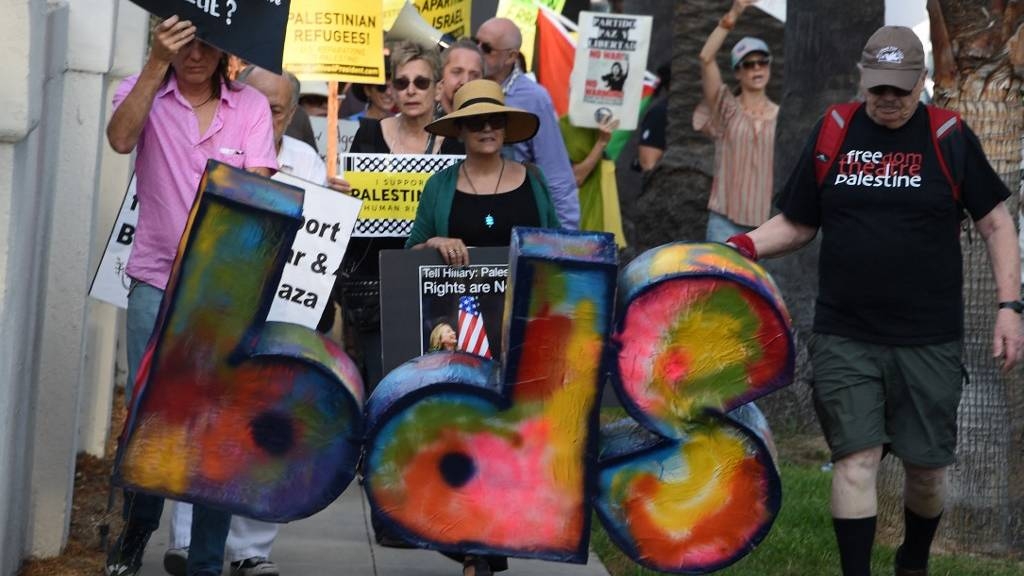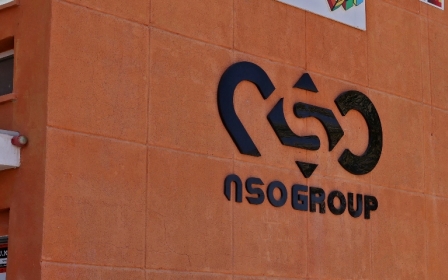US lawsuit equates Palestine advocacy to 'terrorism', court hears

A lawsuit in the US against a Palestinian rights advocacy group is trying to link the organisation's support for Palestinian protest to "international terrorism", an appeals court heard on Thursday.
The Jewish National Fund (JNF) sued the US Campaign for Palestinian Rights (USCPR) in 2019, alleging that the group is liable for militant attacks against Israelis and American citizens because of its support for the Palestinian-led Boycott, Divestment and Sanctions (BDS) movement and Gaza's Great March of Return.
In 2021, a federal judge dismissed the case, saying the plaintiffs failed to establish a direct link between the US-based group's activities and actual attacks against Americans.
The JNF then appealed the case and both sides engaged in oral arguments on Thursday at the US Court of Appeals in Washington.
"It makes it clear that this case is about punishing the US Campaign for Palestinian Rights for its advocacy and its support of Palestinian rights and boycott, which their complaints repeatedly equate in conclusory terms as terrorism," said Diala Shamas, a senior staff attorney at the Center for Constitutional Rights, who is representing the USCPR.
"There is no factual support for that egregious and extreme allegation."
The attorney representing the JNF argued in court that the dismissal of the lawsuit should be reversed, saying that the USPCR aided and abetted acts of "international terrorism" by supporting the Great March of Return and the BDS National Committee (BNC).
The lawsuit seeks a jury trial demanding compensation under the Anti-Terrorism Act (ATA), a US law that allows victims of terrorism to sue accomplices in militant attacks for damages.
The JNF's attorney called for the case to be allowed to continue at the district level, alleging that the USCPR has provided material support to Gaza's Hamas, which the US has designated a terrorist group.
During the arguments, a judge responded by saying that it appears the allegations presented are "insufficient".
'Movement for Palestinian freedom growing'
In a statement following the court hearing, Shamas said the lawsuit from the JNF is "no more than a fishing expedition that casts protected advocacy as a violation of the law. Smearing human rights advocates as terrorists is a tired and cynical tactic".
Palestinian rights activists say the lawsuit is part of a broader effort to stifle advocacy work in the US.
Dozens of states in the US have adopted anti-BDS legislation, and prominent individuals critical of Israel have faced obstacles at American institutions.
Kenneth Roth, the former head of Human Rights Watch, was recently denied a fellowship position at Harvard University over what he said was due to his criticism of Israel.
Roth told MEE he was "worried about younger academics who are watching this sorry episode and are taking away the lesson that if you criticise Israel, you can be cancelled, your career can be stymied".
Still, Ahmad Abuznaid, USCPR's executive director, said in a press release that there is also a growing movement around the world in support of Palestinian rights.
"The worldwide movement for Palestinian freedom is growing," Abuznaid said.
"USCPR’s work to advocate for Palestinian human rights is a critical part of that freedom struggle, or else right-wing forces allied with the Israeli government would not be repeatedly trying to silence us. All the more reason to keep up our work to build toward justice for all."
Middle East Eye delivers independent and unrivalled coverage and analysis of the Middle East, North Africa and beyond. To learn more about republishing this content and the associated fees, please fill out this form. More about MEE can be found here.





